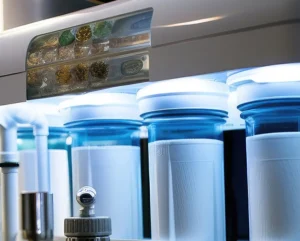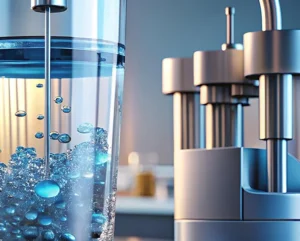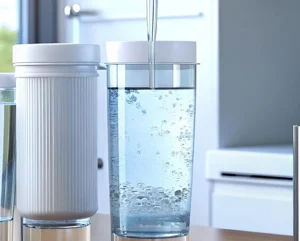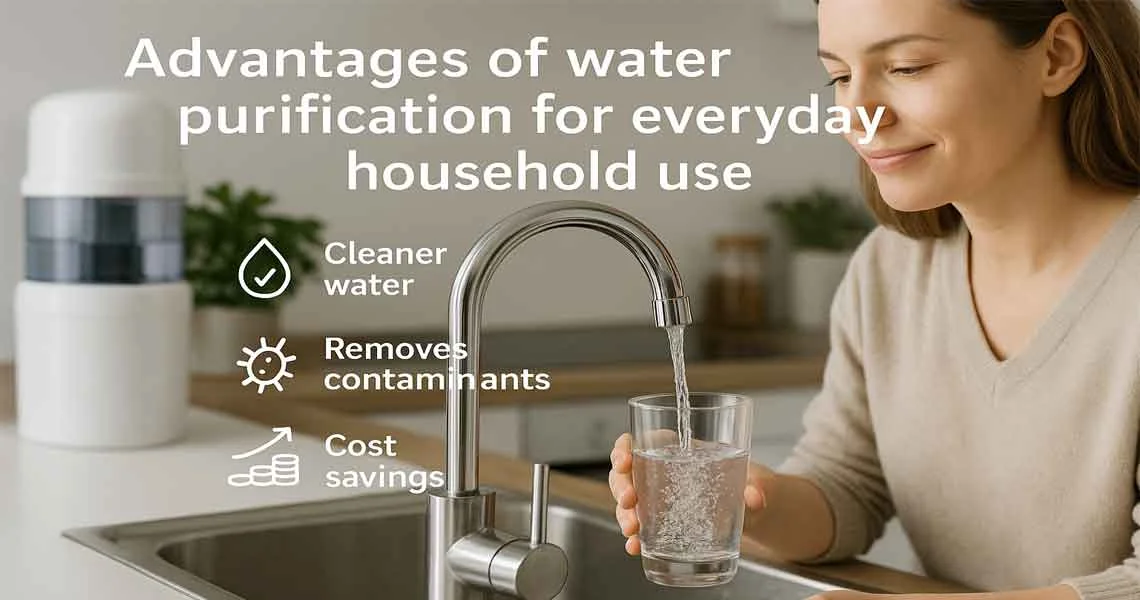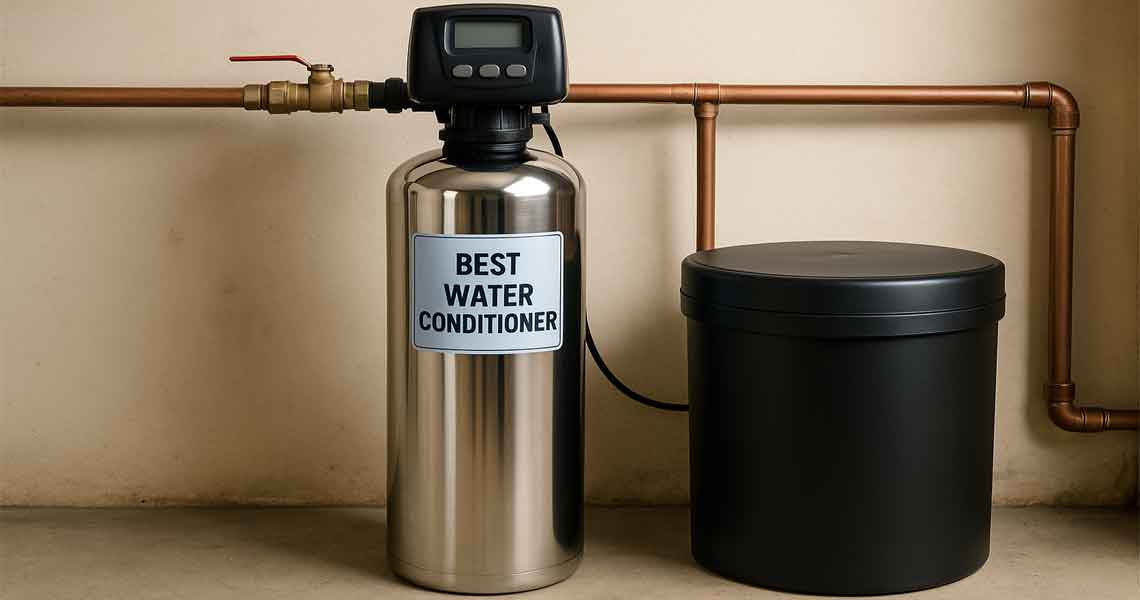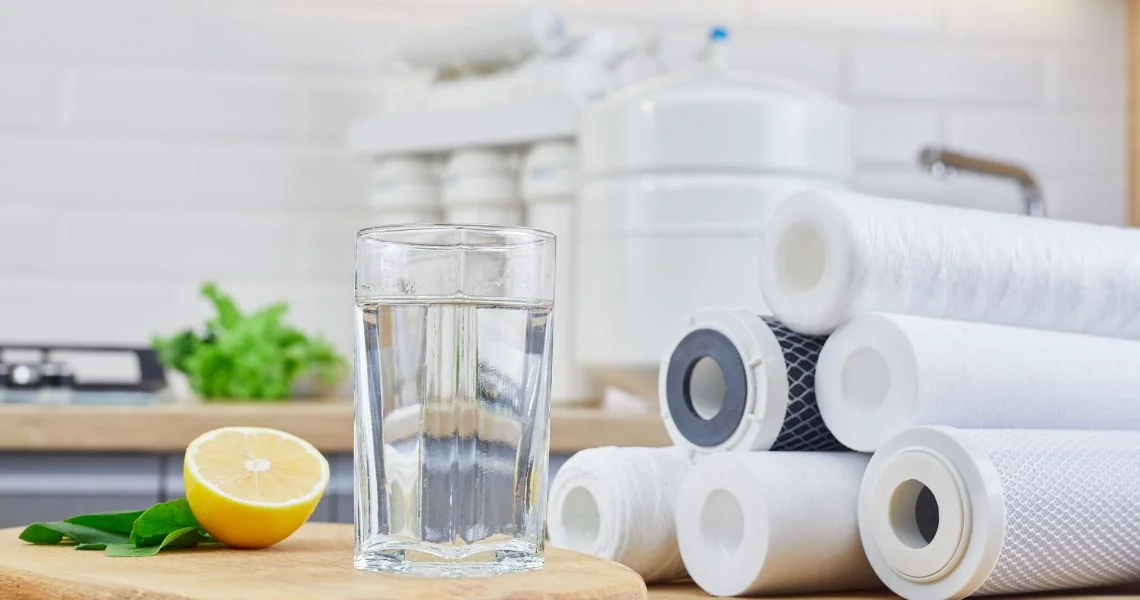Are you trying to find the best full-house water filters for your home? If so, you’ve arrived at the ideal location! Selecting the top full-house water filter is a difficult undertaking! Particularly if you lack expertise in this field. It’s enough to make anyone’s head spin to think about so many things, such as the type of filtration, specific contaminants to remove, hard water problems, flow rates, and overall capacity!
Why Do You Need a Water Filtration System?
The simple fact is that all tap water contains contaminants. Pipe water may occasionally taste bad or have an unpleasant odour, possibly caused by anything from an overabundance of minerals to invisible germs and parasites. Any type of water filter may swiftly produce safe, clean, and drinkable water.
Water filters remove impurities, minerals, germs, and viruses to make water safer to consume. By softening the water and removing mineral deposits, the proper kinds of home water filtration systems can facilitate the body’s ability to absorb and process water. By eliminating the elements that can contribute to the oxidation and overall deterioration of the pipes, cleaner water even helps to safeguard the plumbing in the house.
How do full-house water filters work?
-
- Sediment Filtration
In a whole-house water filtration system, sediment filtration is frequently the first line of defence. During this procedure, larger particles like rust, sand, dirt, and other debris are removed from the water. As water flows through the filter medium, it captures these particles, functioning as a sieve.
-
- Activated Carbon Filtration
Activated carbon filtration is a very efficient technique for eliminating pesticides, herbicides, chlorine, chloramines, and volatile organic compounds (VOCs) from water. This kind of filtering uses a bed of activated carbon, a highly porous form of carbon that has been processed to improve its adsorptive qualities. Hard water in showers, sinks, countertops, and faucets.
-
- Water Softeners
Water softeners vs water filters is a common comparison for homeowners. While softeners are not technically filtration systems, they’re often integrated into full-house setups to combat hard water. High concentrations of dissolved minerals like calcium and magnesium can lead to scale buildup in pipes and appliances, reducing their lifespan and efficiency.
-
- UV Purification
Water can be disinfected chemical-free via ultraviolet (UV) purification, which involves exposing it to UV radiation. This method works exceptionally well for deactivating bacteria, viruses, and protozoa—microorganisms that can lead to waterborne infections.
-
- Reverse Osmosis
Reverse osmosis (RO) is a very efficient filtration technique that eliminates various impurities, such as heavy metals, dissolved solids, and even certain microbes. RO is occasionally included for improved water purification, although it is less frequent in whole-house systems because of its slower filtering rate and increased water waste.
Benefits of Installing Full House Water Filters
Full-house systems are a smart investment in your health and home. Whether you’re dealing with poor-tasting tap water, skin irritation, or hard water damage, the best whole home water filter systems provide comprehensive solutions that go beyond just improving taste—they protect your entire household from a wide range of contaminants.
Health Benefits
-
- Safer Drinking Water: A full-house water filter ensures that the water you drink is safe and clean by eliminating impurities like lead, chlorine, bacteria, and pesticides. By limiting your exposure to these dangerous chemicals, you can decrease your chance of getting a number of health problems linked to drinking tainted water.
-
- Improved Skin and Hair Health: Unfiltered water containing chlorine and other pollutants can deplete your skin and hair of its natural oils, leading to dryness, irritation, and damage. By lowering these harsh chemicals, a whole-house water filter helps your skin and hair stay hydrated and look healthy.
-
- Reduced Risk of Gastrointestinal Diseases: Giardia, Cryptosporidium, and E. coli infections are among the gastrointestinal ailments that can be brought on by waterborne pathogens, which include bacteria, viruses, and protozoa. Eliminating these microbes from your water supply greatly lowers your chance of getting these illnesses.
-
- Lower Cancer Risk: A higher risk of bladder, colon, and rectal cancers has been associated with particular toxins found in unfiltered water, such as industrial pollutants and specific disinfection byproducts. By reducing exposure to these carcinogenic compounds, a whole-house water filter may help lessen your risk of getting certain cancers.
-
- Skin Condition Alleviation: Unfiltered water may make people with sensitive skin or pre-existing skin disorders like psoriasis and eczema worse. A whole home water filter can help reduce these skin issues and encourage healthier, more pleasant skin by eliminating irritants like chlorine and other pollutants.
-
- Improved Hydration: You’re more inclined to drink more water when it tastes and smells better. A whole-house water filter enhances the flavour and odour of your water by eliminating chlorine and other chemicals that might give it a disagreeable taste or odour.
-
- Better Health of the Respiratory System: During hot showers, chlorine and other pollutants in unfiltered water can evaporate and be inhaled. Over time, this may irritate your respiratory system, making allergies and asthma worse.
-
- Enhanced Immune System: A whole home water filter supports your body’s natural defences by lowering exposure to dangerous pollutants and waterborne infections. When your immune system isn’t continuously weakened by these drugs, it can work more effectively and keep you healthy by fending off illness.
Improved Taste and Odor
Municipal water treatment plants frequently use chlorine to disinfect water and eradicate dangerous germs. Although chlorine is effective at getting rid of germs, it may also make water taste and smell bad.
Your water will taste cleaner and fresher after full-house water filters, especially those with an activated carbon stage, remove chemicals like chlorine. Apart from chlorine, a whole home water filter eliminates additional impurities that may impact the flavour and smell of your water, such as:
-
- Sediment and particulate matter
-
- Pesticides and herbicides
-
- Volatile Organic Compounds (VOCs)
-
- Heavy metals (e.g., lead, copper)
Elimination of Unpleasant Tastes and Smells
Various reasons besides chlorine can cause unpleasant tastes and smells in your water. For instance, water with high iron or sulfur content may smell metallic or like rotten eggs. Additionally, bacteria and algae can give water an earthy or musty flavour. This implies that you can use cleaner, better-tasting water for cooking, brewing coffee or tea, brushing your teeth, and drinking.
Extended Lifespan of Appliances
Hard water, which contains high levels of minerals like calcium and magnesium, can cause a buildup of scale inside your appliances. This scale can reduce the efficiency and lifespan of appliances such as:
-
- Water heaters
-
- Washing machines
-
- Dishwashers
-
- Coffee makers
A whole house water filter with a water softening stage removes these minerals, preventing scale buildup and extending the life of your appliances. This means you can enjoy your appliances longer without frequent repairs or replacements.
Frequently Asked Questions
-
- How often do I need to change the filters? Filter replacement varies based on water usage and quality, but most homes only need to replace the internal cartridges every 12 to 18 months.
-
- Will a whole-home water filter reduce hard water? Yes. Our systems help with hard water issues by filtering out minerals and rebalancing your water so you experience less scale buildup and softer skin and hair.
-
- Can I install the system myself? For best results, we recommend professional installation. Our team ensures a quick, hassle-free setup and provides support whenever you need it.
Conclusion
Your specific water needs determine the best whole house water filter system for your home. Different contaminants require different approaches, and each filtration method has its own pros and cons.
-
- Pitcher filters can be useful for more frequent issues, such as the taste or smell of chlorine in your water. Some even provide cutting-edge filters for pollutants like PFAS and lead. Look for certification.
-
- For more complex issues, such as heavy metals, PFAS, or disinfection byproducts (DBPs, such as trihalomethanes and haloacetic acids), you might want a more advanced under-sink system, such as reverse osmosis or ion exchange.
-
- Last but not least, a whole-house water filtration system is an option if you wish to make a significant investment in your house’s water purification. These need to be installed by a professional who will filter all the water in your home.
Brands like Wellness Water Purification specialize in these comprehensive systems, ensuring that every tap in your home delivers clean, safe water.
Finally, investing in the best whole home water filter system ensures your entire household benefits from safer, cleaner water at every tap. It’s not just about filtration—it’s about peace of mind, long-term health, and protecting what matters most.It’s worth noting that while there are other, more obscure filtration and treatment systems that we didn’t cover, conventional technologies will most often address your issues. Contact us now.

Our Products
-
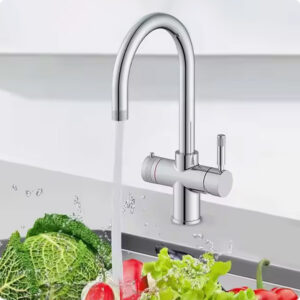 Rated 0 out of 5$1,499.00Select options This product has multiple variants. The options may be chosen on the product page
Rated 0 out of 5$1,499.00Select options This product has multiple variants. The options may be chosen on the product page
FAQs
What does a whole house water filter system cost?
The expenses for a particular system are different according to the kind and intricacy of the system. Generally, the owners of houses should be ready to spend around one to five thousand dollars for a good system with the installation process also included. A single-stage filter which is simple in design will have a lower cost than a multi-stage or a special well water system that will be priced higher.
What is a good whole house water filter system?
A good system should be able to address the particular water problems that you have. Say, carbon-based systems are perfect for municipal water to get rid of chlorine and chemical tastes and odors, whereas well water systems might have UV or iron filters. The best whole house water filtration system is all about conducting a water test and picking the right gear for your needs.
What is the top rated whole house water filter system?
The best-rated systems are those that have been verified to be effective in reducing pollutants, made from strong materials, and supported by good warranties. Homeowners give the highest ratings to multi-stage systems which not only purify the water from harmful contaminants but also solve the aesthetic problem of taste and odor of water.



